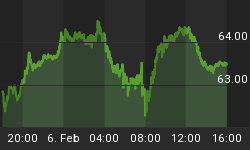The Usual Expectations Ahead
Activity may be quiet in today's US data calendar so it is time to further shed light on next week's key events. Sunday's emergency meeting in Saudi Arabia between oil producers and consumers, combined with next Wednesday's FOMC decision may serve as a powerful recipe for a lasting dollar rebound and effective containment of oil price increases, especially for the US, Europe and Japan. The rationale is that further show of good faith from Saudi Arabia & Comp to coordinate with oil consumers will be interpreted as an intention to help put on oil supply, bringing about a modest retreat in prices and boosting the dollar. The underlining thinking behind the dollar impact of Wednesday's FOMC meeting suggests that further emphasis on anti-inflation vigilance will cement the notion of US interest rates holding stead and possibly a rate hike as early as Q1 2009.
The Usual Disappointment Thereafter
But the key is to stand a step a head and prepare for the potential of a disappointment. On the oil front, producers such as Saudi Arabia have demonstrated their ability for posturing of good faith just as US officials have done to their electorate and constituents. Preliminary indications suggest that the Jeddah meeting will seek limits for market speculators and undertake measures to contain excessive speculation from consumers, while raising output by 5-6% from producers. Such measures appear an ideal combination of supply and demand-driven events to stem oil prices. But as we have repeatedly seen previously, the prospects of a good cop-bad cop act from OPEC is likely to maintain prices supported. Recall last month when Saudi Arabia first mentioned its intention to raise output by 500K barrels only to be followed by other OPEC Ministers to state that the world is awash with oil. Moreover, oil speculators shall require much more than posturing to stem their accumulation of net long positions in oil futures.
On the Fed front, Wednesday's FOMC decision may prove a repeat of the April meeting, which was largely (wrongly) expected to signal a concrete signal for the end of the easing campaign. Once it was revealed that the only change in the FOMC statement was a slight accentuation of inflationary concerns -- rather than a removal of the downside risks to growth -- markets sold the dollar across the board. Could the same occur in next week's statement? Surely, the US economy has yet to demonstrate any credible signs of stability. This week's figures on building permits, housing starts and Housing Market Index show the sector remains in clear deterioration, the unemployment rate shows no signs of peaking, weekly jobless claims hover near the 380K level and the broad consumer sentiment surveys continue to break new multi-decade lows. All of these dynamics are consistent with the Federal Reserve Board's central tendency forecasts revising upwards the unemployment rate and downgrading the GDP growth rate for H2. None of these dynamics calls for shifting towards a tightening bias. Such was our long held position over the past 2 months, well before markets needed enlightenment by this week's articles in the Financial Times and the Washington Post. It is one thing for the Fed to toughen its language in inflation, but this should not be confused with reduction of their growth concerns.
The aforementioned reasoning allows for a near-term retreat in the euro ahead of these meetings, only to be followed by a rude awakening of these expectations, leading to a rebound in the single currency to as high $1.5550 and $1.5620 into next week.

I'm still overseas on business and responding to emails but having issues retrieving voice mail. Feel free to call if the need arises but please do not leave any phone messages until June 30th.















